Helping Little Voices Grow Big.
Call Us for Speech Therapy in Atlanta
Helping Little Voices Grow Big.
Call Us for Speech Therapy in Atlanta
Recently we have seen several patients who have mild Auditory Processing Disorder (APD) and also suffer from Misophonia. So what exactly is Misophonia? Misophonia, also known as Selective Sound Sensitivity Disorder, begins with a trigger. More than likely the trigger is an oral sound, the noise when someone eats, yawns, breathes or whistles. Sometimes, a repetitive movement, such as someone shaking their leg up and down, may trigger sufferers of Misophonia. An individual who suffers from Misophonia usually reacts extremely negatively to something that is triggering them. Several common feelings the individual may have when they are triggered is extreme anxiety, fear, anger or overall emotional distress. Physical reactions such as sweating, shaking, heart palpitations, and restlessness are also common.
Many sufferers of Misophonia have difficulties explaining to their loved ones what they are feeling and how they can't control how they are feeling. Many of our current clients have explained to me that they feel like their parents or siblings don't understand why they are reacting the way they are when they feel triggered by a sound. Many times, they are accused of "over-reacting" or being "too sensitive." This reaction also may contribute to the Misophonia sufferer's feeling of helplessness and feeling withdrawn from their friends and family. It is important for the families of Misophonia sufferers to understand that the feelings they get when they are triggered by a sound can't be controlled. We suggest that the patient that suffers from Misophonia explain to their family how they are feeling and what they know triggers them so they can work with their family to come up with ways to cope with their triggers. It is also important for the family to understand that this sensitivity is not the result of "oversensitivity" or "overreaction." There have been studies, such as one published in Current Biology called, "The Brain Basis for Misophonia", that determine that there are actual responses seen in the brain when a sufferer is triggered. The researchers also determined that the individual experienced a higher heart rate when triggered. So according to this research, and others like it, their responses are subconscious and therefore they can't control what they are feeling.
Misophonia has no known cause or treatment; however, there are several things an individual can do to attempt to cope with their negative feelings towards a trigger. Many that our own Misophonia clients have told me about include: using ear plugs during specifically bad trigger moments (at the dinner table or a restaurant, or in class during allergy season), using ear phones with music to drown out the trigger, moving away from the individual who may be the source of the trigger, or listening to a song or watching a show to attempt to distract themselves for a moment so they can continue with what they were doing. Other sources, such as Web MD, have mentioned that maintaining a healthy lifestyle by getting plenty of sleep, regular exercise, and managing stress may also help with coping with Misophonia.
SAGE Speech & Learning is the ONLY practice in Georgia that is trained and certified to provide the Lidcombe Program for stuttering. Stuttering therapy in Atlanta is scarce, and much…
A compassionate and enthusiastic person who provides one-on-one help in the classroom for a child with diverse needs. A facilitator's goal is for their student to be successful in the…
Speech therapy is the evaluation and treatment of communication and swallowing disorders. Speech and language development usually follows a typical pattern in children. If you have concerns about your child's…
SAGE Speech & Learning strives to provide each family with a welcoming and knowledgeable team of specialists, each uniquely equipped to address the needs of your child. We refer to…
There are some treatments that have been determined successful in alleviating the symptoms of Misophonia such as talk therapy, therapy normally used for tinnitus, cognitive behavioral therapy, or even antidepressants. Here at Little Listeners we are trying to see if using the Interactive Metronome (a rhythm training therapy tool) is an effective for alleviating the symptoms. We currently have a handful of teenage-aged clients who suffer from Misophonia and APD. We are doing the normal APD therapy with more Interactive Metronome training than we would in a session with a client who doesn't suffer from Misophonia. Several of the clients have mentioned that they have noticed a difference in their ability to ignore what used to trigger them. They also have mentioned that they feel like some of their triggers went away. All of these clients are still in the middle of their therapy program, so we are waiting until the end of their therapy to really determine whether or not they benefit from the extra IM training. There is still a lot of research to be done about the causes and possible treatment for Misophonia, and Little Listeners looks forward to hopefully contributing to a potential treatment.
_________________________________________________
GUEST BLOG BY LITTLE LISTENERS:
Little Listeners- Helping Young Minds Learn to Listen
At Little Listeners, we specialize in treating hearing and auditory problems.
We strive to be caring, comprehensive and consultative. We work hard to foster an environment that gives both doctors and parents peace of mind that their patient or child is in the right hands. Our clinic has been specially designed to provide a warm and child-friendly setting. We strive to make this a fun and effective environment for helping young minds learn to listen.
Call Today! 770.744.2451

At SAGE Speech & Learning Associates, we know that the best care for our clients comes from a collaborative approach. This…
Read More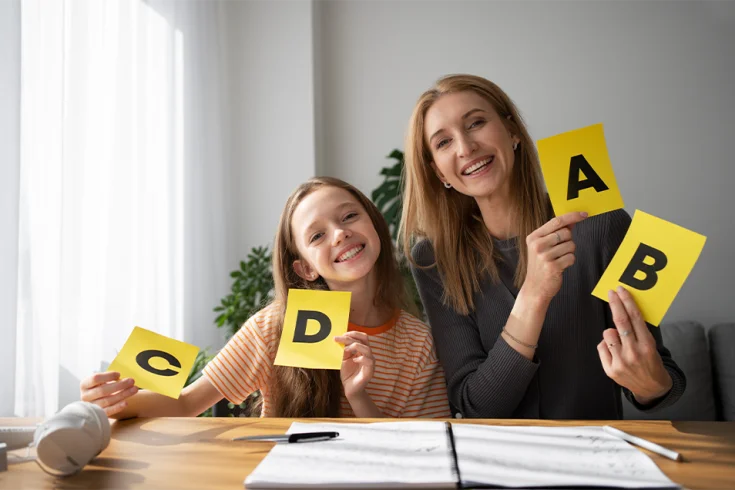
At SAGE Speech & Learning Associates, we believe that early intervention is key when it comes to speech and language development,…
Read More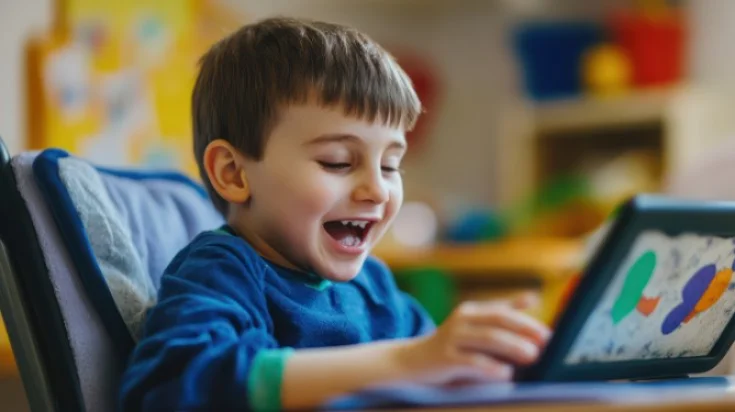
At SAGE Speech & Learning Associates, we are committed to providing personalized and specialized care for every child we serve. We…
Read More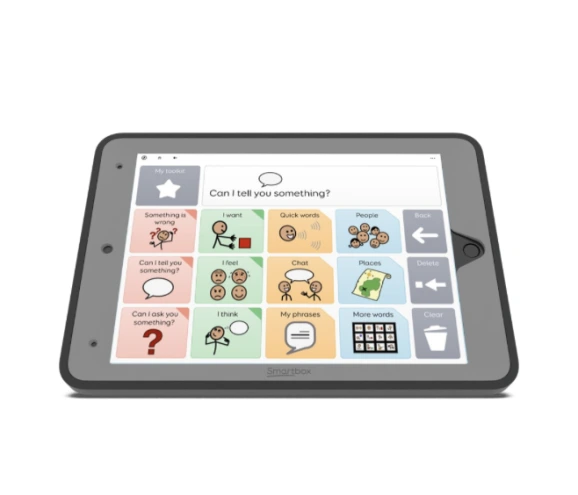
Exploring the Benefits of Speech Generating Devices in Speech Therapy: Insights…
Read More
Has your school considered engaging SAGE Speech & Learning Associates? At SAGE Speech & Learning Associates, we recognize the vital role…
Read More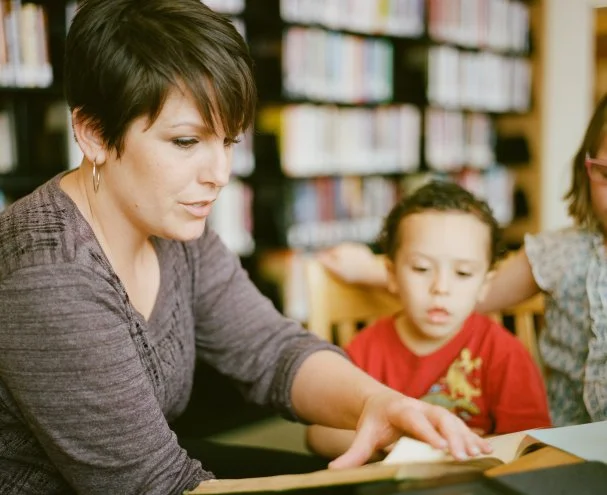
Fingers crossed, but it seems it that 2021 is shaping up to be a much better school year than 2020. We…
Read More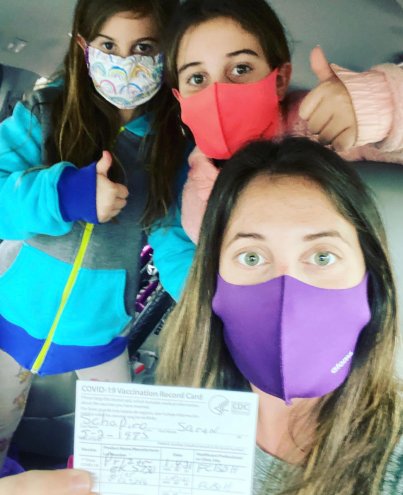
A Letter From Founder Saren Schapiro M.Sc., CCC-SLP Dear Colleagues, As the year rounds into the second quarter, I am touching…
Read More
Hello Clients and Friends, I want to thank you for being a part of our team in 2020. To have made…
Read More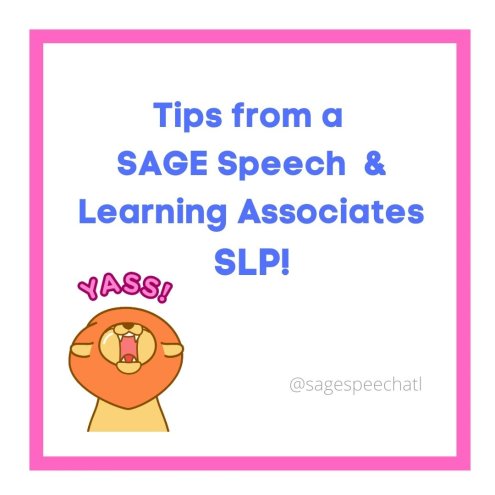
Discuss with the child out loud/verbally what's coming next--"First we do this, then this, then this, then done/lunch/play/etc" Bundle-up…
Read More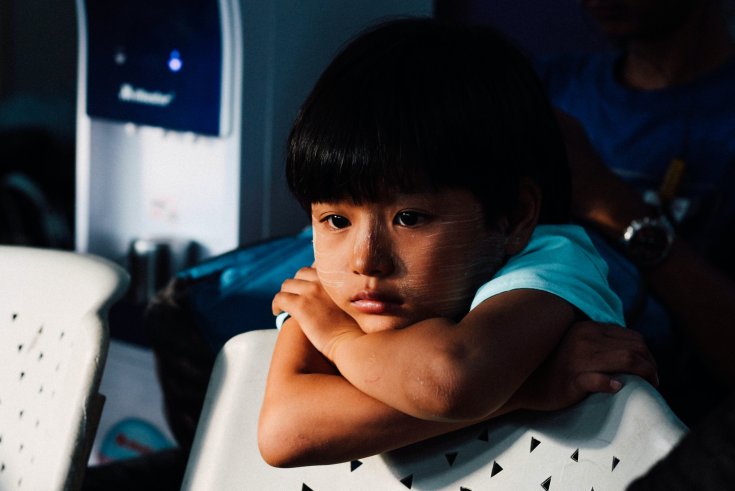
This is a question we never imagined we would have to answer. SAGE Speech & Learning has pivoted to teletherapy services…
Read More